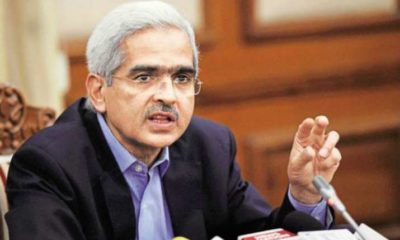World
G20 summit outcome positive for global economic recovery

Antalya (Turkey): The G20 Summit concluded with broad consensus on ways of achieving inclusive and robust growth of the global economy, which is still recuperating from the impact of the 2008 financial crisis.
The major economies on Monday agreed to strengthen coordination of macroeconomic policies, promote trade and investment, stimulate employment and boost investment in infrastructure. These measures, if fully implemented, will give a powerful boost to slow economic recovery, quoted analysts as saying.
The G20 leaders made a dim assessment of the global economic situation in a communique released at the end of their two-day summit in Antalya, a seaside resort in southwest Turkey.
“Global economic growth is uneven and continues to fall short of our expectations, despite the positive outlook in some major economies. Risks and uncertainties in financial markets remain, and geopolitical challenges are increasingly becoming a global concern,” the communique said.
However, the G20 leaders said they remain committed to lifting collective G20 gross domestic product (GDP) by an additional two percent by 2018, a target set in the last G20 Summit in Brisbane, Australia.
Wang Xiaolong, the Chinese foreign ministry’s special envoy for the G20 affairs, said that against the backdrop of the sluggish global economic recovery, people have pinned high hopes on the summit, which is a primary forum for international economic cooperation.
“The summit sent a clear message… Although the global economy is experiencing some difficulties, we are still confident in the prospect of its medium-and long-term growth,” he said.
The annual gathering of the G20 leaders also displayed the partnership among the G20 members, which is especially valuable at a time when the world economy is not in a good shape, Wang said, adding that the leaders also agreed on a series of concrete measures to stimulate growth.
All of this will contribute to the achievement of a strong, sustainable and balanced growth of the world economy, he predicted.
With a possible interest rate hike by the US Federal Reserves in the coming months, the G20 leaders promised to “implement sound macroeconomic policies in a cooperative manner” to achieve a robust growth.
The anticipation of an imminent interest rate hike by the US Federal Reserves has sent shock waves across emerging economies in the world, whose currencies have weakened sharply against the US dollar in the past year.
“There is a clear need to continue a cooperative approach at the G20 level on global macroeconomic policies, with the aim of strengthening the recovery, lifting potential growth and enhancing financial resilience,” said Donald Tusk, president of the European Council, in a statement.
In a bid to increase youth employment, the G20 leaders agreed to the goal of reducing the share of young people who are most at risk of being permanently left behind in the labour market by 15 percent by 2025 in G20 countries.
The communique also showed that the G20 economies have developed ambitious country-specific investment strategies in order to boost much-needed infrastructure investment.
Citing an analysis by the Organisation for Economic Cooperation and Development (OECD), the communique said these strategies would contribute to lifting the aggregate G20 investment to the GDP ratio by an estimated one percentage point by 2018.
The G20 leaders pledged to work together for a successful Nairobi ministerial meeting on world trade and called for the prompt ratification and implementation of the Trade Facilitation Agreement.
The G20 leaders also agreed to step up the fight against corruption and plug tax loopholes exploited by multinational companies, as part of the efforts to enhance the resilience of financial institutions.
“The G20 represents 80 percent of the world economy, you can’t make it happen in any other forum. Although the G20 is not a decision-making forum, but once a consensus is reached you can carry it forward wherever a decision has been made,” OECD Secretary-General Angel Gurria said.
World
Lockdowns in China Force Urban Communities to Defy Censorship and Vent Frustration Online

Shanghai’s rich middle class is leading a wave of online dissent over the strict and prolonged lockdowns imposed in various parts of the country. Chinese internet censorship is struggling as patience is wearing thin in many urban centers, coming up with creative forms of online protests.
Social Media Posts Revealing Lockdown Tension in Shanghai
Drawn-out lockdowns are nothing new in China as authorities insist with the nation’s zero-Covid policy since the start of the pandemic. Currently over This time around, however, metropolitan areas like Shanghai are increasingly difficult to keep quiet, given that its more than 25 million residents have seen weeks of total isolation along with food shortages and many other service interruptions.
Dozens of towns and reportedly over 300 million Chinese citizens have been affected by lockdowns of different severity. As expected, urban netizens have been most outspoken over their difficulties by finding creative ways to get around state censorship and bans placed on topics, news comments and spontaneous campaigns.
Shanghai residents have been using mobile proxies and hijacking seemingly unrelated hashtags to talk about healthcare issues, delivery failures and the overall severity of their situation. The “positive energy” that the Chinese government wants to transmit during the recent prolonged series of lockdowns does not come naturally to those counting food supplies and online censors are working hard to filter words, trending topics and undesired social media sharing.
WeChat groups and message threads are under constant monitoring. Posts questioning the zero-Covid approach have been quickly deleted, including by leading Chinese health experts like Dr. Zhong Nanshan. Video footage is soon censored and protests and investigations are quickly made to disappear.
Where this has not worked, officials have exposed banners with warnings and outright threats like “watch your own mouth or face punishment”, while drones have been patrolling the city skies. Yet, if anything, this has led to further tensions and unspoken confrontation with Shanghai’s educated and affluent middle class.
Creative Online Solutions Harnessing Civic Energy
Announcements by Chinese social media that they would be publishing the IP addresses of users who “spread rumors” have not helped either. Tech industry research has shown that much of Asia’s tech-savvy population has a habit of using mobile proxies and other privacy tools, quickly finding workarounds to browse the internet freely and talk to the world about the hottest topics.
The sheer volume of forbidden posts is already a challenge for the very censorship system, experts explain. Unable to track all trending hashtags, state workers overlook topics that speak about the US, Ukraine or other popular news. Linking human rights elsewhere to their situation, Chinese online dissidents establish their informal channels and “hijack” the conversation to share personal or publicly relevant information about the Covid suppression in their town.
Sarcastic and satirical posts still dominate. Others hope to evade the censors by replacing words from famous poems or the national anthem. One thing is certain – social media, when harnessed with the right creativity, has proven its ability to mount pressure on the government in even some of the most strictly controlled tech environments like China.





















